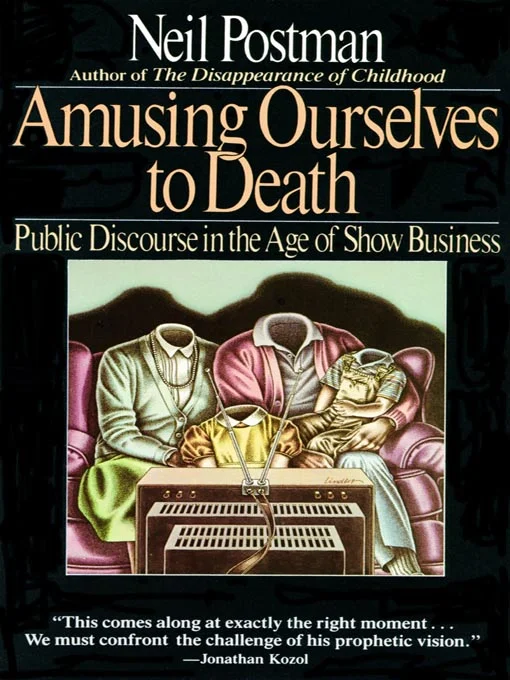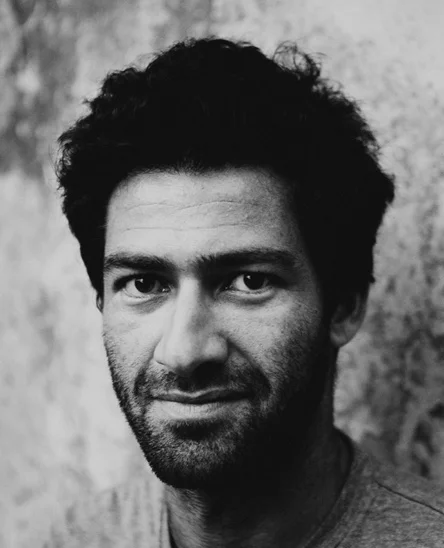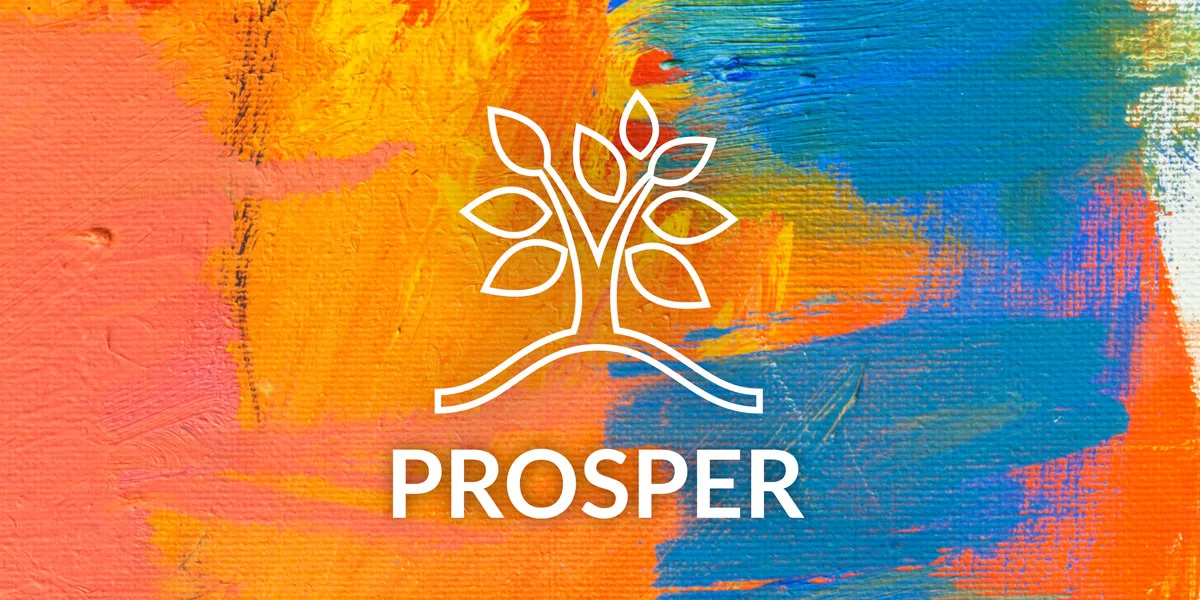Graphic abortion protest met with counter-protest
Abortion protestors who visited Liberty’s campus Wednesday were met with a counter-protest by Liberty students who opposed the drastic measures taken by the organization in order to spread their message.
Protesters from the Center of Bio-Ethical Reform propped up large posters declaring, “Abortion is child sacrifice,” along with Bible verses and large, graphic images of aborted fetuses. They positioned themselves in two public property spaces located in key spots on Liberty’s campus – the traffic circle in front of the bookstore and on the sidewalk next to the “Liberty University” sign in front of the football stadium.
Liberty junior Kara Gullie was on her way to the White Hart Cafe in downtown Lynchburg when she saw the protestors standing on the traffic circle with their signs. She headed back to her dorm room and created a poster that said, “Jesus loves Planned Parenthood workers! Women who aborted! Women who did not! His children! You! Me!”
Then Gullie headed back to the traffic circle…
Continue reading my article published in The Lynchburg Torch here.
A captive and trivial culture: technology ethics in a tech-consumed world
In the introduction to Neil Postman’s 1985 book Amusing Ourselves to Death, Postman compared the dystopias described in two novels: George Orwell’s 1984 and Aldous Huxley’s Brave New World.
Orwell, Postman said, warned readers that they would be overcome by an externally imposed oppression. Postman says of Huxley’s vision, “No Big Brother is required to deprive people of their autonomy, maturity and history … people will come to love their oppression, to adore the technologies that undo their capacities to think.”
While Postman’s book largely concludes that Huxley was right, experts on technology and social media development indicate that the two views may not be mutually exclusive.
In many ways, contemporary culture has become captive to the manipulative design and functions of technology, created by those who did not, as Huxley suggested, fail to “take into account man’s almost infinite appetite for distractions,” but rather, have taken advantage of it.
And subsequently, individuals have been taken captive to their addiction to that technology.
Carissa Lintao is the owner of Apptuitive, an app marketing agency based outside of New York City. Working in the field of app design and development opened Lintao’s eyes to the importance of technology ethics in a largely self-serving industry.
According to Lintao, for many app developers, money is the end goal. The short and long-term psychological and social impact of their app concept is hardly on their mind.
“The people I’m dealing with right now are people that are like, ‘I have a billion-dollar app idea, here’s $30,000, I don’t care what it does to anyone or the social ramifications,’” Lintao said. “People are building social media platforms to monetize our attention and us. That’s basically it, when it comes down to it.”
And since attention can be monetized through technology, it is often manipulated through technology.
Tristan Harris, an ex-design ethicist at Google, said in a May 2017 interview on the Rubin Report that every single app, media site, news site and podcast is competing for attention, and many design and marketing decisions are made without ethical consideration of the product or platform’s ultimate impact.
“The best way (to compete) is to actually play … magic tricks on people’s minds and manipulate them so that you can get as much attention as possible,” Harris said in the interview. “And that … is where the responsibility lies.”
Brian Green, the assistant director of campus ethics at Santa Clara University—a school located in the heart of Silicon Valley, widely considered the epicenter of technology and innovation—said that while technology and social media began as positive opportunities with endless possibility, they have in many ways spiraled into darker places than intended or even considered.
“(Tech companies’) incentives are all wrong, because they’re getting money for our eyeballs looking at their advertisements that they’re giving to us,” Green said. “They figured out ways to start hacking the system and make it do what they want to do, whether spread misinformation or addict people and make them watch advertisements more often.”
“What the advertiser needs to know is not what is right about the product but what is wrong about the buyer.”
Niel Postman
According to Lintao, the scrolling mechanism on a smartphone is similar in concept to the lever on a slot machine. A person’s hand stays put, the screen in front of them keeps changing and some type of a reward—maybe a dopamine hit from likes, comments or a certain connection—comes just often enough to keep them scrolling.
“It’s called a variable reward, so you keep going and going and looking until you’re satisfied, and you get the dopamine hit or whatever, and you’re on to the next thing,” Lintao said. “So that’s how it’s designed. It’s very open-ended, with no goal.”
Harris also used the slot machine analogy in his interview on the Rubin Report. Every time a person checks their phone, Harris said, they have a Facebook invitation or a newsletter or a text waiting for them.
And the fact that something could be there—whether that thing is actually good, bad or neutral—is enough to keep people checking their phone nearly constantly. According to a 2018 study from the global tech company Asurion, the average American checks their phone about 80 times a day—or every 12 minutes.
“It’s because … when you turn your phone over, it could be a match on Tinder with that hot (person) that you want to date, it could be that email that’s really exciting, it could be that text message from that person you really wanted to text you or it could just be nothing,” Harris said in the interview. “Every single time you turn it over you’re playing … sometimes you get good stuff, sometimes you don’t.”
Lintao said that most people don’t consciously know why they spend as much time on social media apps as they do.
“If you look at the apps that you do love—no one says they really love Instagram—you love Spotify, you love Nike Run, or Headspace because you have a goal,” Lintao said. “Social media is just an endless hunt for whatever.”
Americans no longer talk to each other, they entertain each other. They do not exchange ideas, they exchange images. They do not argue with propositions; they argue with good looks, celebrities and commercials.
Neil Postman
The ethical questions that technologists face are not simple. Even decisions regarding something as simple as notifications—which feel to most technology users entirely within their realm of control—are made in the offices of technologists who must weigh the psychological and sociological impact of various design features.
“As we were designing the next version of Gmail … how do you, for example, decide, should you buzz people’s pockets when they get a new email?” Harris said in the interview with Rubin. “It’s a seemingly trivial decision. But ... dinner conversations and families will either be disrupted or not. Someone will glance and see it and get sucked in or not, all because of this one decision in California (by) a handful of people in a room.”
Irina Raicu is the internet ethics program director at Santa Clara University in Santa Clara, California.
Irina Raicu, the internet ethics program director at Santa Clara University, said that the impact of social media on democracy through the political conversations that people are having is especially significant. Information was once distributed by gatekeepers who would screen and disseminate the information, but now it’s a free for all.
And the clutter is not promoting critical thinking.
“Everybody is putting information on social media from a variety of sources, and there’s all this noise, and nobody knows who to believe anymore so they believe their friends, because we tend to trust the people we know more,” Raicu said. “But then we end up just reinforcing group beliefs rather than being exposed to others.”
Harris noted in the interview that Silicon Valley is a libertarian culture, where people “make their millions by their own self-will and their own success,” and consequentially, the mentality is that “it’s always people’s individual responsibility how they use everything.”
“There’s this whole narrative that it’s up to us to choose how we use technology, and how many emails we send, and what we post on Facebook,” Harris said. “(But) we are persuadable on every single level, from the attention level to the trust level to the belief level. And so how do you ethically steer the phenomenology of someone?”
Raicu said that technology companies need to take responsibility for the ethical decisions they make.
“Some of the responsibilities (of tech companies) would be to just slow down and think ahead and consult with a varied group of people when they build something, so that they don’t get into their own bubble and think they understand the world,” Raicu said.
While tech companies do have significant power to manipulate and monetize the attention of their customers, Green says that the companies and individuals often disagree over who is responsible for technology’s impact on society.
“Technology always has unforeseen consequences, and it is not always clear, at the beginning, who or what will win, and who or what will lose...”
Niel Postman
“The corporations say individuals should do the managing, and individuals say maybe if the technology wasn’t so addictive this wouldn’t happen, and then people say maybe the government needs to pass a law about it or treat it like an addictive drug,” Green said. “There are lots of ways where you could step in to try to do something.”
But tech ethicists are hopeful that things will change as individuals begin to hold technology companies responsible for the decisions they make. According to Green, more technologists are becoming aware of the negative impact of their technology, and actively responding.
“I think one of the things that’s interesting that’s happening right now is that the tech workers themselves have begun to wake up and realize that what they’re doing is having negative effects, and that they don’t want to be involved in making the world a worse place,” Green said. “They got into technology because they’re trying to make the world a better place.”
Green says that responsibility for ethical technology development and use ultimately lies with everyone involved, both the creators and the consumers.
“I think the answer is it has to be everyone,” Green said. “We have to try to build up our own discipline so that we can put down the smartphone or stop looking at the screen when we need to. And it would be nice if the tech companies could help us do that by making their product less addictive.”
Drones, doughnuts, and (app) downloads: lessons in business from young entrepreneurs
Carissa Lintao, owner of Apptuitive, an organic app marketing company.
Best Buy and Forever 21 just weren’t working out.
After failing to find a typical, minimum-wage sales associate or retail job in high school, Carissa Lintao turned to a Google search for online work.
The search results connected her with Upwork, an online freelance writing company, where Lintao began to apply for writing projects.
Lintao’s first gig was a $7 short-story creative writing project. Soon afterward, she was hired through Upwork by an independent app developer who was creating a trivia app for the TV show “House of Cards.”
With a $50 contract and the app developer’s Netflix password, Lintao began watching episodes and writing content for the app.
Lintao said that working on that project with this app developer opened the floodgates of opportunity for her to learn about the app industry.
“(The app developer) was like, ‘This is a million-dollar industry right now,’ and now each category in the app store is worth a couple billion dollars,” Lintao said. “’He said, ‘You don’t even need to learn to code and program. Just keep doing what you’re doing with the content stuff, learn how to market an app, learn branding, get an app on the app store, and just do that.’”
So that’s what Lintao did. She didn’t anticipate that just a few years later, she would not only have built a five-figure side hustle and completed three internships while still in college, but also own her own app marketing agency, Apptuitive.
Read. Watch. Listen. Think. Learn everything about what you want to do.
Alexandru Barker began college pursuing a degree in law enforcement, but less than two years into the program, he realized that wasn’t what he really wanted to do. After spending some time working with videography and drones, Barker realized that business and technology were his true passions, and that he wanted to combine those passions into a company.
“I was like, ‘Alright, I’m going to do it.’” Barker said. “Then I realized that I had no money and couldn’t just buy a drone."
Barker began reading all the books that he could get his hands on, learning the ins and outs of running a business and drone technology.
"I started doing advertising with another drone company, getting involved and going out and calling people and drone businesses in the area, saying, ‘Hey, can I help you? Can I work for free? Can you teach me?’” Barker said. “Just doing everything I possibly could to get as much experience as I possibly could.”
Alexandru Barker, photo by Liberty News Service.
In her blog post about freelancing and becoming an entrepreneur, Lintao stressed the importance of taking advantage of free information and taking every opportunity to learn.
“I ran some numbers for kicks and giggles, and I read approximately 104 books, listened to 172,800 minutes' worth of podcasts, and watched 1,500 videos,” Lintao wrote in her blog. “At this point, I’d like to think I have a tiny Ivy League education. I’ve listened to more Stanford, Harvard, and Cornell talks than any normal 21-year old should.”
Barker said that if aspiring entrepreneurs don’t take the time to stop and think through their ideas in light of both quality research and practical experience, they are unlikely to succeed.
“If you have a great idea but you go into it blindly, and think you’re going to be the greatest thing, you’re probably going to fail because you haven’t really researched the market,” Barker said. “You don’t know what people are doing and why things are working.”
Learn to learn from and work with other people.







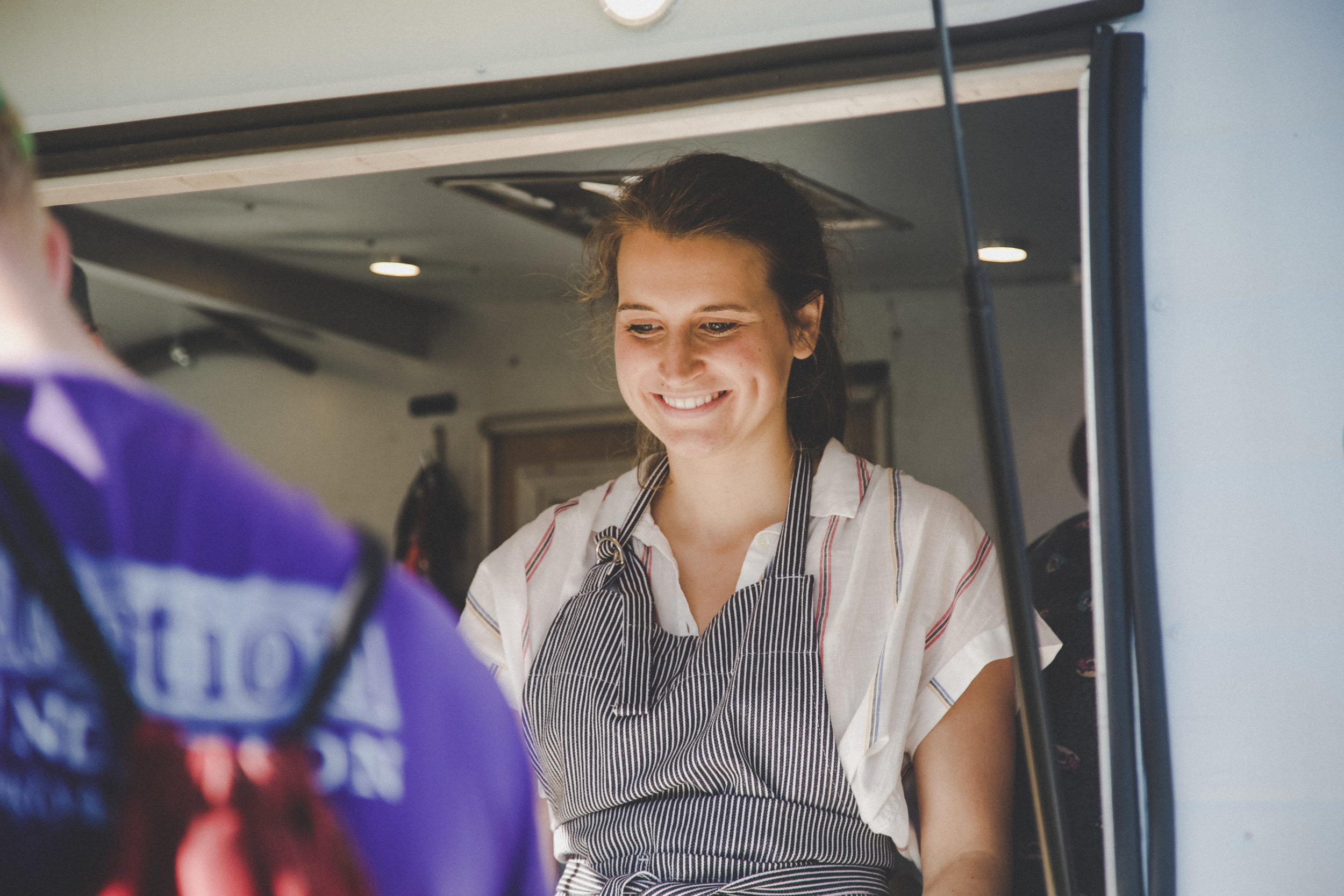







Before college senior Abigail Daniels started operating her artisan doughnut food truck, Dawn and Dusk, she thought that the life of an entrepreneur was a highly individual endeavor.
“The reason I wanted to be an entrepreneur was because I didn’t want to work for someone. I viewed it as: I get to be alone and do my own thing. But that is not the (reality),” Daniels said. “I realized entrepreneurs need community with one another. If I had tried to do it alone, I would have missed out on so many great relationships.”
Daniels has operated Dawn and Dusk for the past year with the help of her family and several close friends. The business needs now require the hiring of additional employees, which is an exciting phase of the business, according to Daniels.
According to Barker, seeking guidance from business professionals or experts in the field is another element critical to success for beginning entrepreneurs.
“I started calling CEOs, getting on the phone with people, asking people, ‘Hey, who do you know that I could talk to?’ Barker said.
Those professional connections, along with utilizing peers with specialized skill sets, are what helped Barker to begin his businesses. Barker said that people need to realize that they’re better together than they are apart in order to start and run a successful business.
“Why do we get married? Why do we have relationships, period? Because usually we’re better together than we are apart,” Barker said. “That’s when Apple becomes Apple, and (that’s when) your company will become the next greatest thing.”
Just do it.
Jeremy Lyman, co-founder of Birch Coffee.
Jeremy Lyman and Paul Schlader opened the first Birch Coffee coffee shop on 27th Street in Manhattan in 2009. Less than 10 years later, they are in the process of opening their 11th store in New York City and looking into branching out to the Midwest.
Lyman said while he was still tossing around the idea of opening a coffee shop, he finally came to the conclusion that he simply had to fully commit. He quit the job he had at the time, dove into the planning process, and hasn’t looked back since.
“Just make a mistake,” Lyman said. “Be okay. But keep an open mind, be teachable.”
Lyman said that in looking back over the past decade of starting up and operating a coffee business, he doesn’t see any part of the process as failure or a waste of time. Lyman and Schlader have learned from their mistakes, and as their knowledge of the business has expanded, they have grown and adapted the business as necessary.
“I think failure is where you miss where you went wrong in the past, and if you make the same mistake again and again and again, come on. That’s failure,” Lyman said. “But when you recognize the issue and you shift, and you’re able to recognize that, that's (success).”
Daniels said that before fully investing in Dawn and Dusk, she felt like someone needed to give her permission to move forward with her business idea. She didn’t view her intelligence or work ethic as particularly impressive.


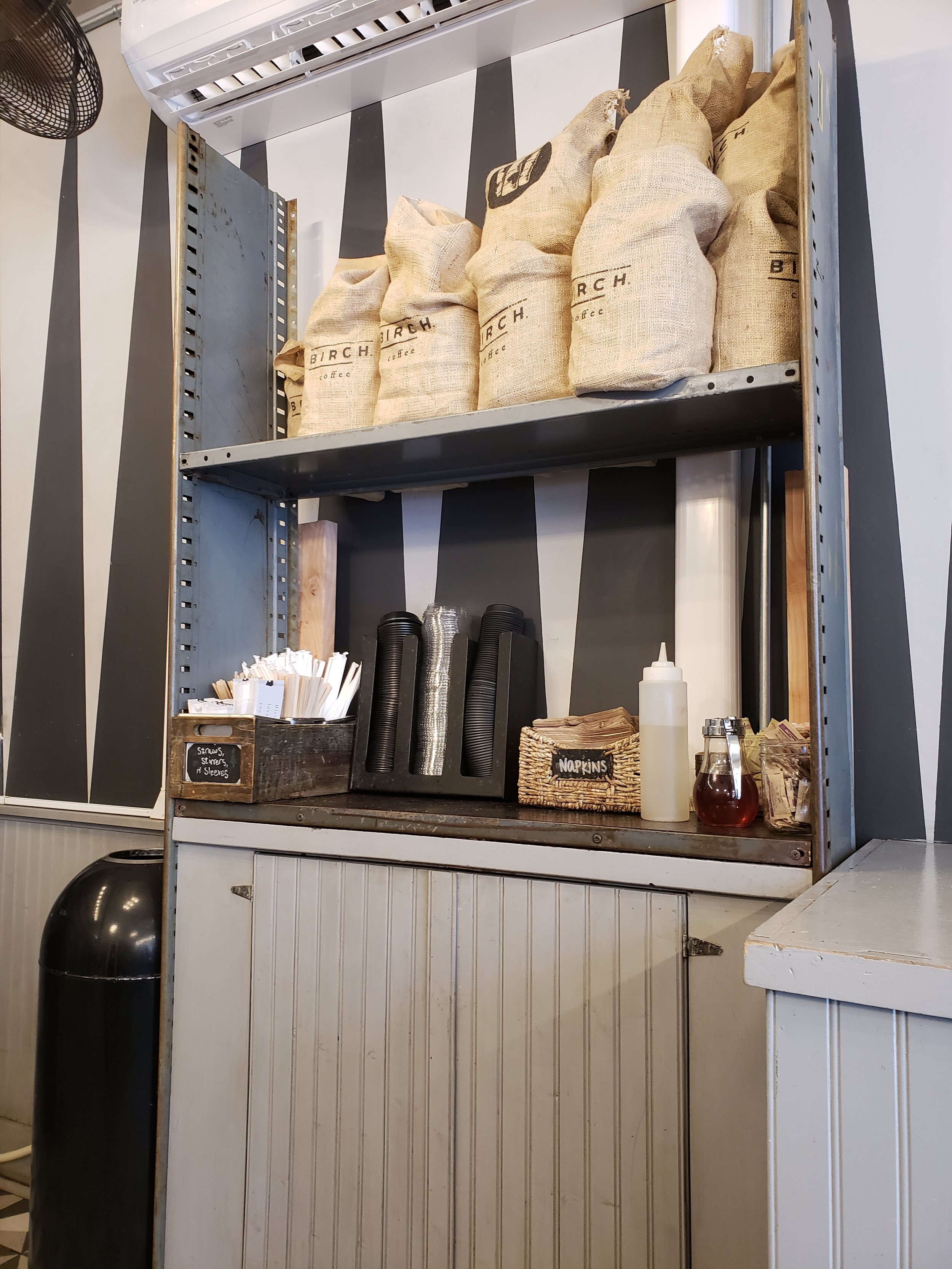
But Daniels was willing to try, and according to her, that’s what made the difference.
“I want people to not be afraid to do the things they have in their heart, because God gives all of us dreams. Even really little ones,” Daniels said. “Just do it. Do the one thing getting closer to that goal, and if you fail, at least it’s out of your mind and you can go on to something else.”
When asked how she would advise young, aspiring entrepreneurs, Lintao responded along the same lines as Lyman and Daniels.
“Just do it,” Carissa said. “I love Nike for their saying, because, ‘Just do it.’”
Look forward.
While the skills of an entrepreneur can be cultivated, Barker said he believes that the visionary quality of a successful entrepreneur is inherent and unusual in today’s world.
“I’m a dreamer, I’m a big vision kind of guy, and I think that is something you’re born with,” Barker said. “I think you can develop that, but ultimately, if you can see the big picture and you can have a vision for something—that’s something very unique nowadays.”
Self-awareness is critical for anyone developing a company, according to Lintao.
“Know yourself. Do you actually have the passion and drive to do what you’re doing?” Lintao said. “I feel like that’s the biggest takeaway I’ve had for myself this year—getting in tune with when is the right opportunity and being so in tune with myself that everything else kind of falls into place.”
Lintao said that although she has a big vision for her app marketing business and technology in general, the day-to-day work doesn’t always feel profound.
But ultimately, the slow, learning phases are the growing phases.
“As much as I’m passionate about changing the world, you also have to run a business and it has to be profitable and practical. I don’t want to keep living with my parents and four other siblings forever,” Lintao said. “Right now I’m doing a bunch of warm and cold emailing, trying to get sales, trying to figure out what services I should be offering and what price point should I be offering them at, (and) figuring out how I operate and lead people as CEO of a company. Every day I’m learning something new. It’s a good kind of very stressful, but that’s the phase I’m at right now.”
Liberty Champion opinion: #MeToo scandal
Early in 2018, #MeToo came for the Southern Baptist Convention.
And before the rest of us think we’re exempt from the judgment at hand, we must realize that #MeToo has also come for us.
In March, President and Chief Executive of the SBC’s Executive Committee Frank Page resigned over what was described by the church as a “morally inappropriate relationship in the recent past,” according to Baptist News Global.
Not long afterward…
Continue reading my article published in the Liberty Champion here.
But you chose to come here: the struggles and convictions of LGBTQ+ students at Christian universities
During his freshman year of college at Liberty University, Nathanial Totten, raised in Michigan in a conservative Christian household, developed a close friendship and began to fall in love. Not unlike most young college romances, the situation was fraught with melodrama and heartbreak.
But this particular relationship caused a unique identity crisis.
The problem? Totten had fallen in love with another man — and was forced to come to terms with his own identity and personal convictions, along with the corresponding beliefs and policies of his religious university.
“When your experiences don’t fit the traditional Liberty mold, or are in conflict with that idealism, you begin to notice that friction and you have to decide — well, what part of myself am willing to let capitulate?”
-Nathanial Totten
“There’s an expectation (at Liberty) of how we believe, why we believe, what we believe and what we do with that belief,” Totten said. “When your experiences don’t fit the traditional Liberty mold, or are in conflict with that idealism, you begin to notice that friction and you have to decide — well, what part of myself am willing to let capitulate?”
Students who choose to openly acknowledge and embrace an LGBTQ lifestyle while attending religious universities confront near constant discouragement and frustration. These students are constantly faced with the challenge of balancing the outworking of their identity with the conflicting policies and convictions of the university they attend.
Some people question why LGBTQ students choose to come to these universities in the first place — and why so many of them stay.
Caitlin Stoudt is a gay student attending the evangelical Spring Arbor University in Michigan. On September 17, 2017, Stoudt published a blog post titled: “But You Chose to Come Here…,” referencing the statement often posed as a question to LGBTQ-affirming students at universities with conflicting policies.
“I watch straight couples hold hands and fall in love while knowing that I could get expelled for having that same beautiful experience.”
-Caitlin Stoudt
“I check a box on my housing application every year, promising that I will not engage in any kind of ‘homosexual activity’ so that I can qualify for a dorm,” Stoudt said in her blog post. “I sit through sermons by chapel speakers who speak as if there could not possibly be any queer students in the room. I watch straight couples hold hands and fall in love while knowing that I could get expelled for having that same beautiful experience.”
And yet, Stoudt said, when she questions the effects of her university’s policies on LGBTQ students, she meets with the same response over and over again: “Well, you did choose to come here.”
When Totten — who will graduate May 2018 — first visited Liberty in the fall of 2013, he was sold on the cutting-edge campus, Virginia’s mountains and the campus’s strong spiritual atmosphere. He applied, was accepted and was quickly launched into classes, activities and social groups on campus the following year.
“I came to Liberty very ideologically conservative,” Totten said. “I came here and thought, ‘Wow, (Liberty University) is so stylistically progressive,’ … I really felt like it was a happy medium between traditions and would give me a more moderate view of reality.”
But months of inner turmoil during his first year on campus led Totten to come to terms with a personal unavoidable reality: he was gay. Despite wishful thinking, he couldn’t suppress or pray the gay away and hope that one day he would find a woman he wanted to marry.
“The first time that I experienced this emotional depth of interest in someone, it put me face to face with, ‘This is real — what am I asking of myself?’” Totten said. “I’m not just talking about never having sex with someone. I’m talking about never coming home from work to someone, never having Saturday lunch when we’re doing nothing all day, never having random Target trips in the middle of the night.”
Gay Christians are often told that the only way for them to please God is hope and pray that God will change their attractions, and in the meantime — or forever — remain celibate. According to Totten and Stoudt, this mentality is deeply harmful, both excluding and condemning LGBTQ students on the basis of their sexual identity.
“I don’t always know how to reconcile my genuine love for the Body of Christ with the ways it continues to do harm,” Stoudt said in her blog. “I don’t always feel like the relationship is justifiable, and I don’t know if I can tell LGBTQ Christians to keep pouring their energy and affection into an organization that barely tolerates them.”
Totten said that it is unfair to assume that LGBTQ students have a choice in whether or not they attend their university. Often, they have not come out to their parents and families — and doing so might mean losing emotional and financial support.
“A lot of kids had to come here … (they’re) here as a way of satiating their parents will for their lives,” Totten said. “I mean, if they were to just up and leave, how would they justify that to their family, if they aren’t out to them yet?”
“If they were to just up and leave, how would they justify that to their family, if they aren’t out to them yet?”
— Nathanial Totten
Totten said that although he does believe that the views of Liberty University are wrong, he doesn’t expect the university’s attitude toward LGBTQ students to change overnight.
“I think you’ve got people like me over here saying, ‘Hey, we want (the school) to affirm us, and celebrate us and include us,’ and you’ve got the school saying, ‘Well no, this violates our ethical values,’” Totten said. “I don’t know that it’s realistic to say that Liberty University needs to become a wholly affirming and inclusive environment, because I understand that sexual ethics as a conversation is the tip of an iceberg.”
In her blog post, Stoudt said that she stays at Spring Arbor University because she shouldn’t have to leave because of her sexuality. She stays because of the community she has found and because of the professors who have affirmed her calling and shown her what Jesus looks like. She stays because “the idea of (LGBTQ students) feeling scared or alone is enough to keep me right here, reaching out.”
“Treat LGBTQ affirmation as a legitimate idea that, while it differs a great deal from the institution’s ideal, exists.”
— Nathanial Totten
The ability of a religious university to uphold their convictions and simultaneously meet the needs of their LGBTQ students is not impossible, according to Totten. It only requires a willingness to have truly open conversations.
“How can (the university) uphold (their) convictions and actually meet the needs of (their) LGBTQ students in a way that, in good faith, demonstrates a willingness to build a better community?” Totten said. “I think that’s a process that happens when the administration … does the actual labor of undertaking hard conversations and listening to LGBTQ students. Understand them. Treat LGBTQ affirmation as a legitimate idea that, while it differs a great deal from the institution’s ideal, exists.”
Featured image taken by Nathanial Totten.
Liberty Champion opinion: PROSPER Act shakes up left side of Congress
What bill is currently working its way through Congress and could influence the fate of Liberty University students’ unsubsidized loans and Pell Grants and the university’s ability to operate according to its religious convictions?
The answer is the proposed PROSPER Act, formally titled the “Promoting Real Opportunity, Success, and Prosperity Through Education Reform Act.” This bill, often referred to as the new Higher Education Act, is a reauthorization of the Higher Education Act, originally signed into law by President Lyndon B. Johnson in 1965. This reauthorization of the bill is currently being reviewed and will soon be presented to the House of Representatives for approval.
On his podcast “The Briefing,” Dr. Albert Mohler noted on Feb. 5 that sometimes, critical legislation appears innocuous and garners little attention, despite its widespread significance.
The PROSPER Act is indeed a critical piece of legislation…
Continue reading my article published in the Liberty Champion here.


